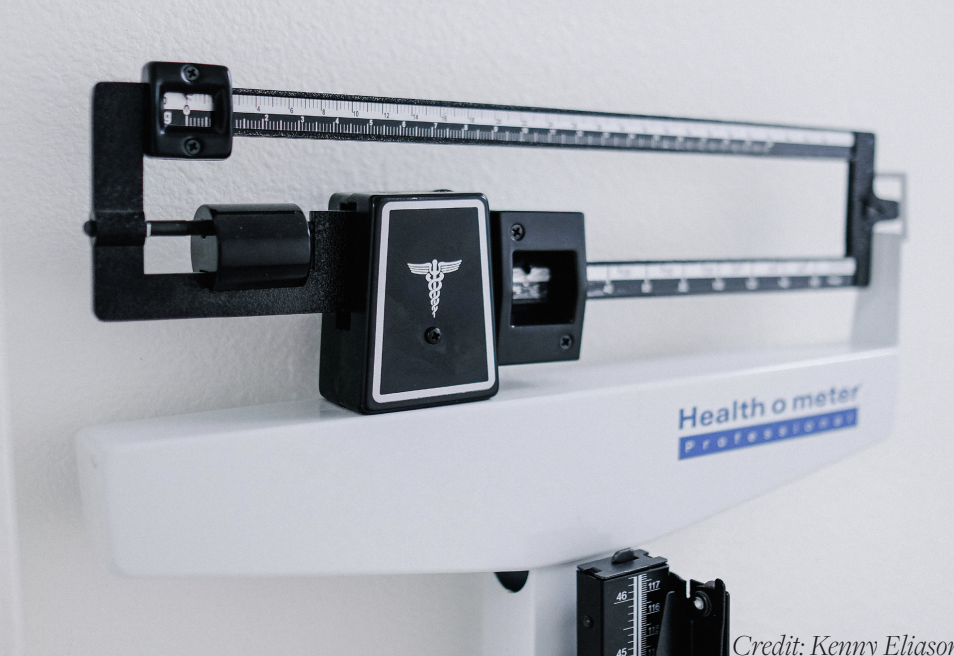Anti-Fatness Is So Much Bigger Than Taylor Swift: A Comment On Performative Activism
CONTENT WARNING: This article contains detailed descriptions of anti-fat bigotry, as well as mentions of sexual assault.
Taylor Swift’s music video for her song “Anti-Hero” graced my TikTok ‘For You’ page several times this month with creators upset at a scene in which Taylor steps on a scale and sees the word “fat” in big bold letters. The word has since been removed from her video after the backlash.
Regardless of your opinion on the video, the tsunami of people crying out that Taylor was fat-phobic and still remaining silent on anti-fat bias in every other context is disheartening. Especially in the social media age, performative activism is a massive problem in the fight for justice. Still, I was caught by surprise, especially since I had just finished reading Aubrey Gordon’s book What We Don’t Talk About When We Talk About Fat.
Anti-fat bias isn’t a new topic to most. You may see stories of fat people being excluded from spaces, or hear activists discuss misrepresentation in the media. It’s true that fat people are often the butt of the joke or their plotlines in stories are entirely about their fatness. In the news, fat people can be seen represented as headless bodies—warnings—for thin people. A growing discussion has also begun on the lack of plus-size clothing options, where in 2018 plus-sized people only had access to 2.3% of the clothing thin people could access. Yet the systemic discrimination of fat people goes beyond what usually shows up on social media.
Fat people face a minefield of anti-fat sentiments each time they seek healthcare. Despite weight being a wholly inaccurate measure of health that is based on a racially-biased BMI system, anti-fatness is often cloaked in concern for the well-being of fat people. Even if you truly believe that being thin is equivalent to being healthy, 95% of people who attempt to lose weight through dieting gain it back within a few years and body shaming actually makes people gain weight, not lose it.
Medical fat-bias is an issue that starts with medical students who show high anti-fat bias and which trickles down to result in atrocious healthcare for fat people. It’s common for fat people to be misdiagnosed because their concerns are, by default, attributed to their weight and they are prescribed weight loss as a universal treatment. Drugs are also not always tested on fat people. Plan B, for example, loses effectiveness if you’re more than 165 pounds. Prescription diet drugs are pushed to the market and prescribed to fat people before they’ve been fully tested despite causing life-threatening problems like heart failure. Bad health care for fat people unfortunately also means they go to the doctor less often, largely because of the discrimination they face. Not going to the doctor leads to more undiagnosed and untreated medical issues.
Fat people also experience unique types of abuse. Fatcalling, which is verbal abuse (usually insults) shouted at fat people in public, is an unfortunate shared experience for a lot of fat people. They are also less likely to be believed when they speak up about sexual assault, often rooted in the belief that no one would ever want to be with a fat person and therefore they can’t possibly have been assaulted. There are several terms related to the sexual assault of fat people, particularly around fraternity culture, such as ‘hogging,’ ‘pig roast’, and ‘rodeo.’ (Content warning: looking up these terms may be triggering.)
Discrimination against fat people is still legal in a lot of US states. Fat people can be denied housing, employment, a seat at a restaurant, a hotel room, a seat on a plane, and more simply because they are fat.
If you haven’t heard much about anti-fatness you could be forgiven for thinking that most of the issues were internal, that people feel insecure, because the discussion around fat bias has shifted to being more about internal self esteem. Talking about discrimination like it’s a self-esteem issue dismisses the experiences of fat people. This isn’t about body image. It’s not about body positivity. It’s certainly not about Taylor Swift daring to use the word “fat” in a video. It’s about the systemic oppression of fat people. It’s about the real consequences of widespread anti-fatness. If you want to help work towards body justice, turn your attention to the issues that matter.
Looking for a next-step? I can’t recommend Aubrey Gordon’s work enough. She has a thorough reading list on her website if you’re interested in reading beyond her work.
If you or someone you know has been affected by an eating disorder, you can go to www.nedic.com (National Eating Dis- order Information Centre) for live chat services, or register for free, group-based support at Sheena’s Place.
For services and resources regarding feel- ing unsafe while on campus, contact Com- munity Safety Office: 416-978-1485 For more information and peer support, you can contact Innis Pears: innispears@ gmail.com
Sources:
Aubrey gordon’s book What We Don’t Talk About When We Talk About Fat
https://www.aubreygordon.net/ (aubrey gordon’s website which includes the reading list I mention) https://www.yourfatfriend.com/fat-reading-list https://highline.huffingtonpost.com/articles/en/everything-you-know-about-obesity-is-wrong/ (the article where I first learned about Aubrey Gordon)
